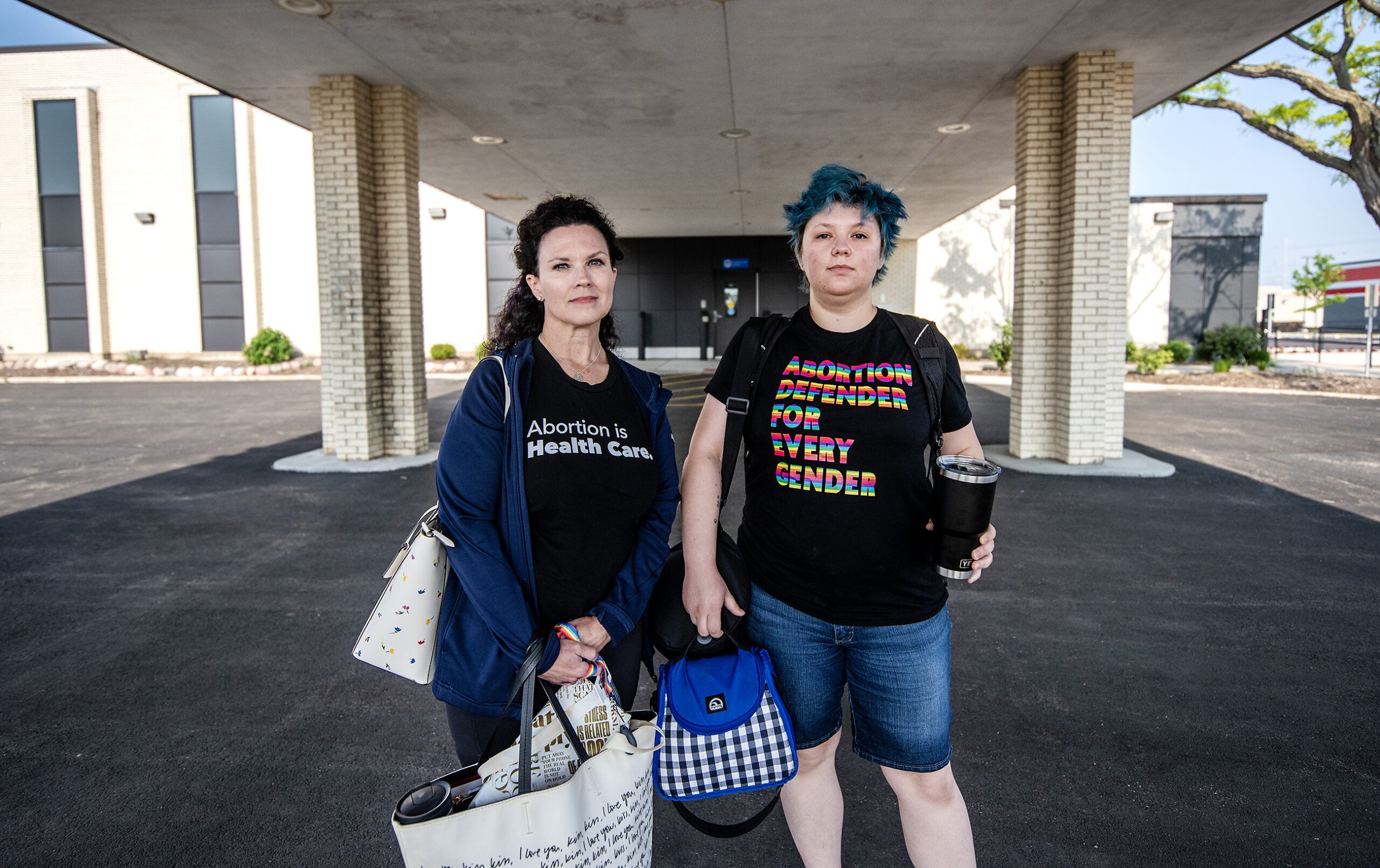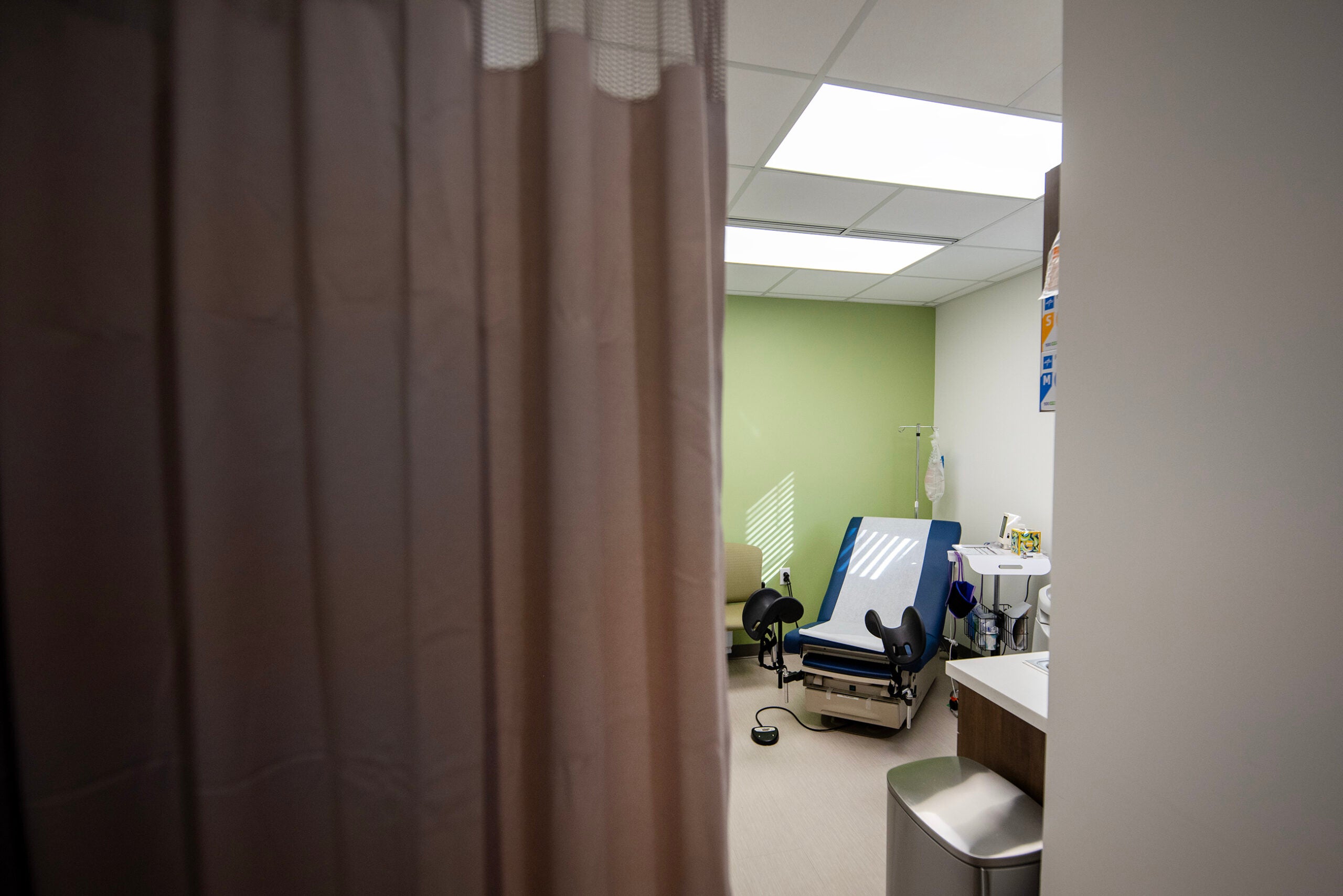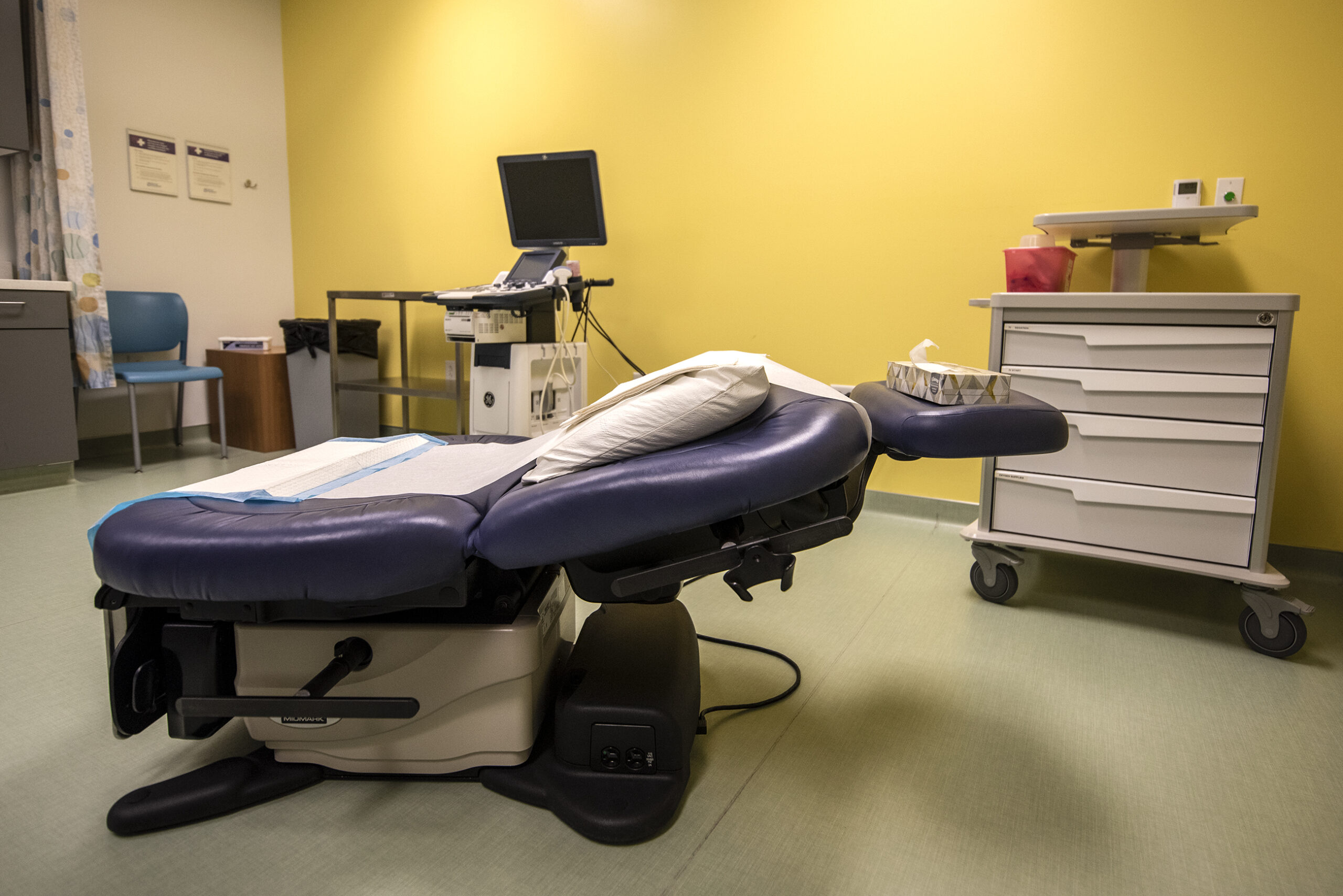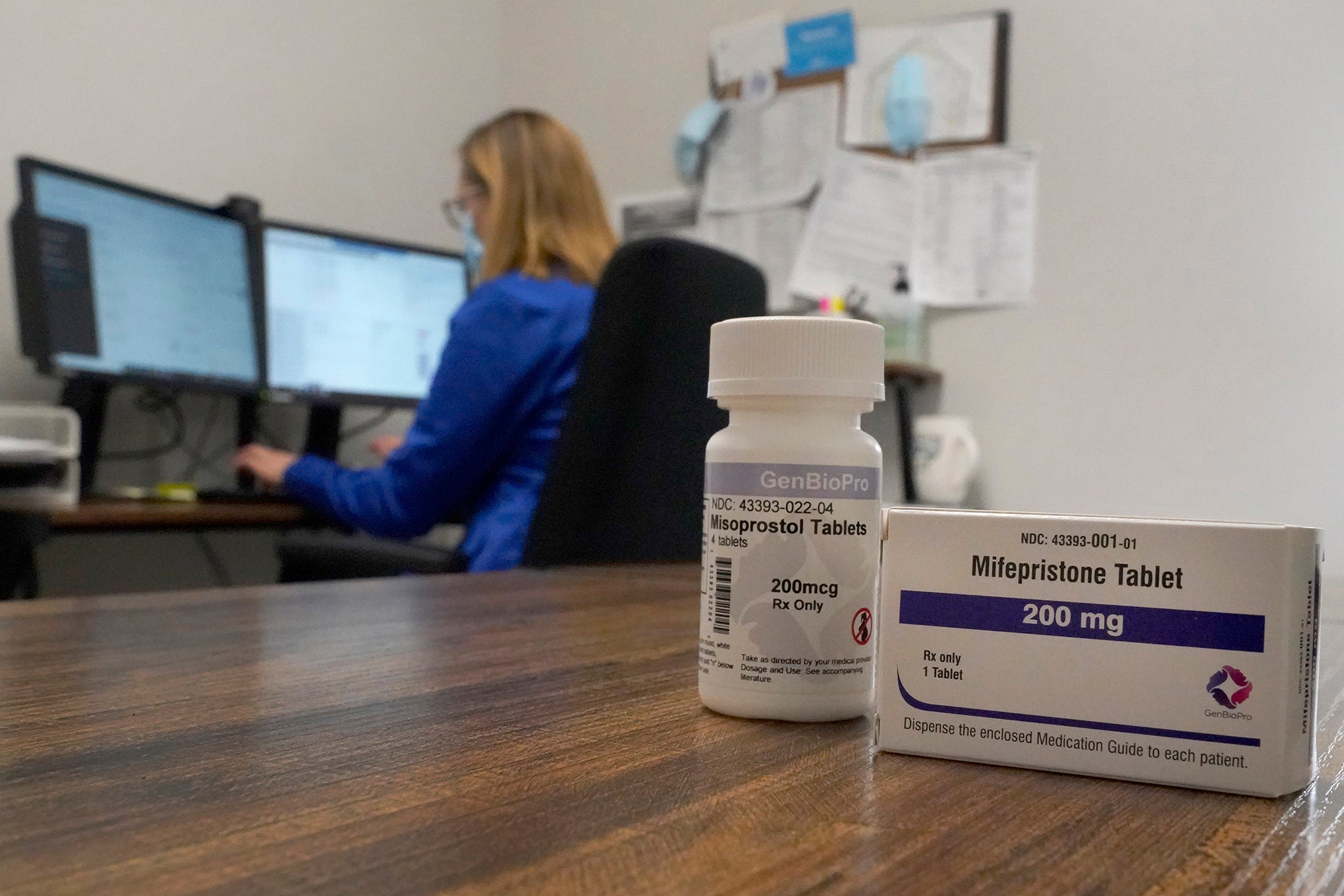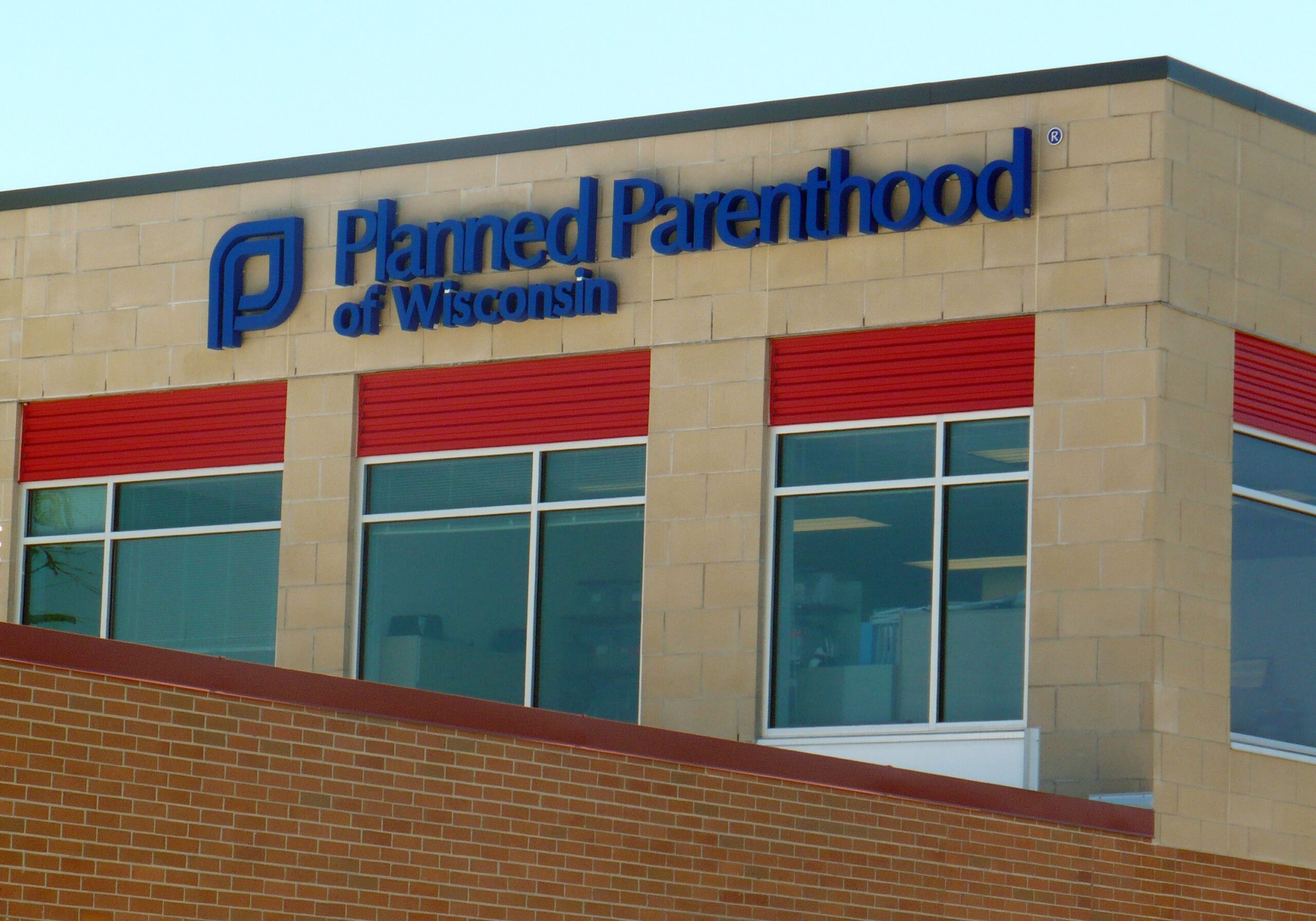Every Wednesday morning at 6 a.m., Heather Ellingson packs up her car, picks up a coworker, and makes the two-hour drive from Madison to Waukegan, Illinois.
The Planned Parenthood nurse spends two days each week at the Waukegan clinic, working with patients who are getting abortion procedures. She said the trip just makes sense.
“Most of these are our patients,” she said. “So many people, patients from Wisconsin, we see in Waukegan.”
News with a little more humanity
WPR’s “Wisconsin Today” newsletter keeps you connected to the state you love without feeling overwhelmed. No paywall. No agenda. No corporate filter.
Saturday marks one year since the U.S. Supreme Court issued its historic opinion in the Dobbs v. Jackson Women’s Health Organization case, overturning Roe v. Wade and leaving the legality of abortion up to individual states. In Wisconsin, nearly all abortions became illegal immediately, as an 1800s-era law that is still on the books took effect again.
One year after the Dobbs decision, things look quite a bit different for Wisconsinites on both sides of the issue. As legal abortions have ceased in the state, patients, providers and protesters are making the trip to Illinois, Minnesota and other states where it’s still legal.
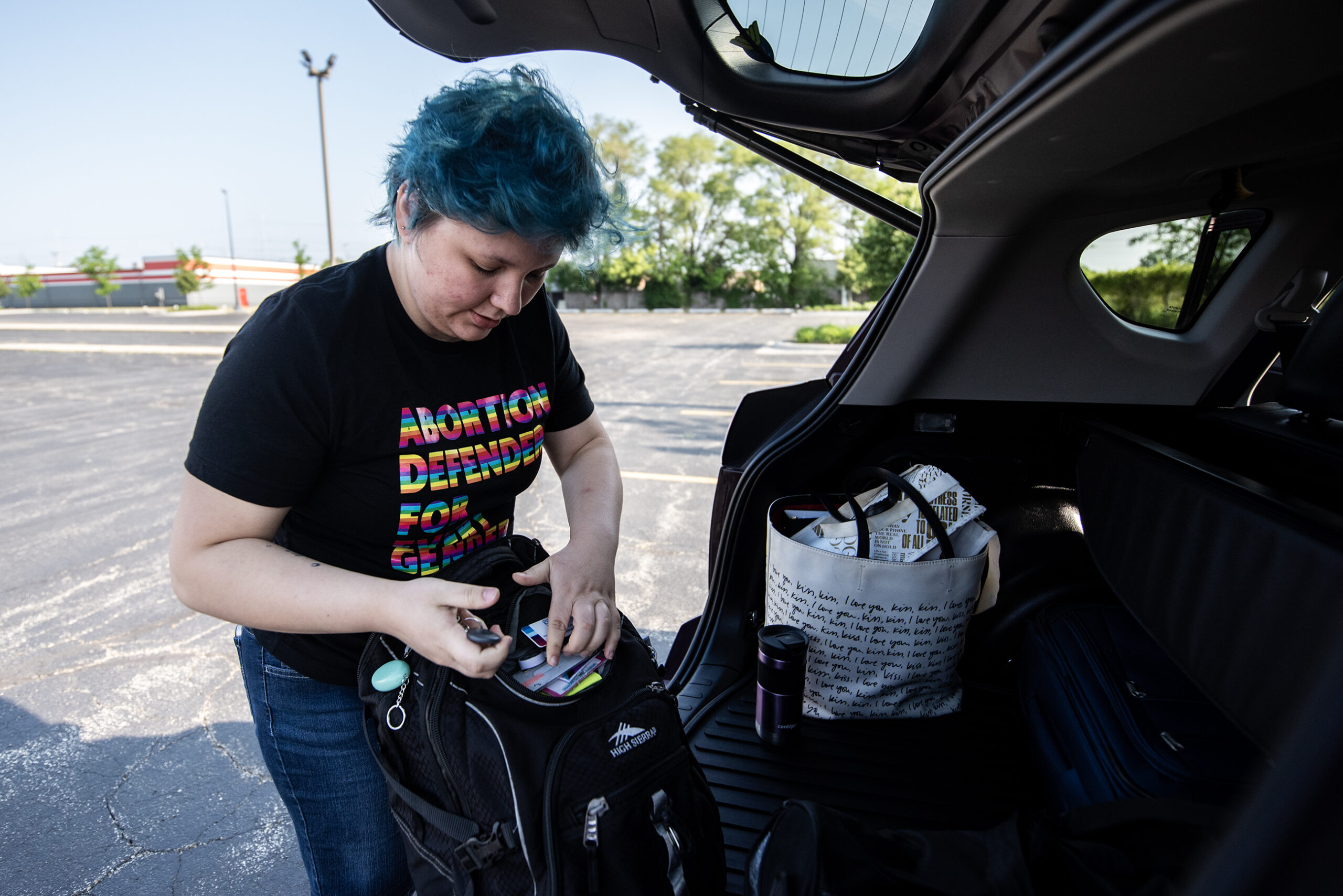
Shortly after Ellingson arrived at the Waukegan clinic on a recent Wednesday, a small group of protesters began to set up on the sidewalk between the busy road and the clinic. They were from Wisconsin, too.
“We came from Wisconsin to Illinois to try to reach out to women who are abortion-minded,” said Anne Franczek of Milwaukee. She’s been protesting at abortion clinics for close to 40 years, and now comes to Waukegan twice a week with the Christian anti-abortion group Tarry One Hour.
The Waukegan clinic opened in 2020, with an eye on serving patients from nearby Wisconsin. For Franczek, that’s part of the reason she makes the trip twice each week.
“If they’re going to be that strategic, why shouldn’t we be strategic?” she said.
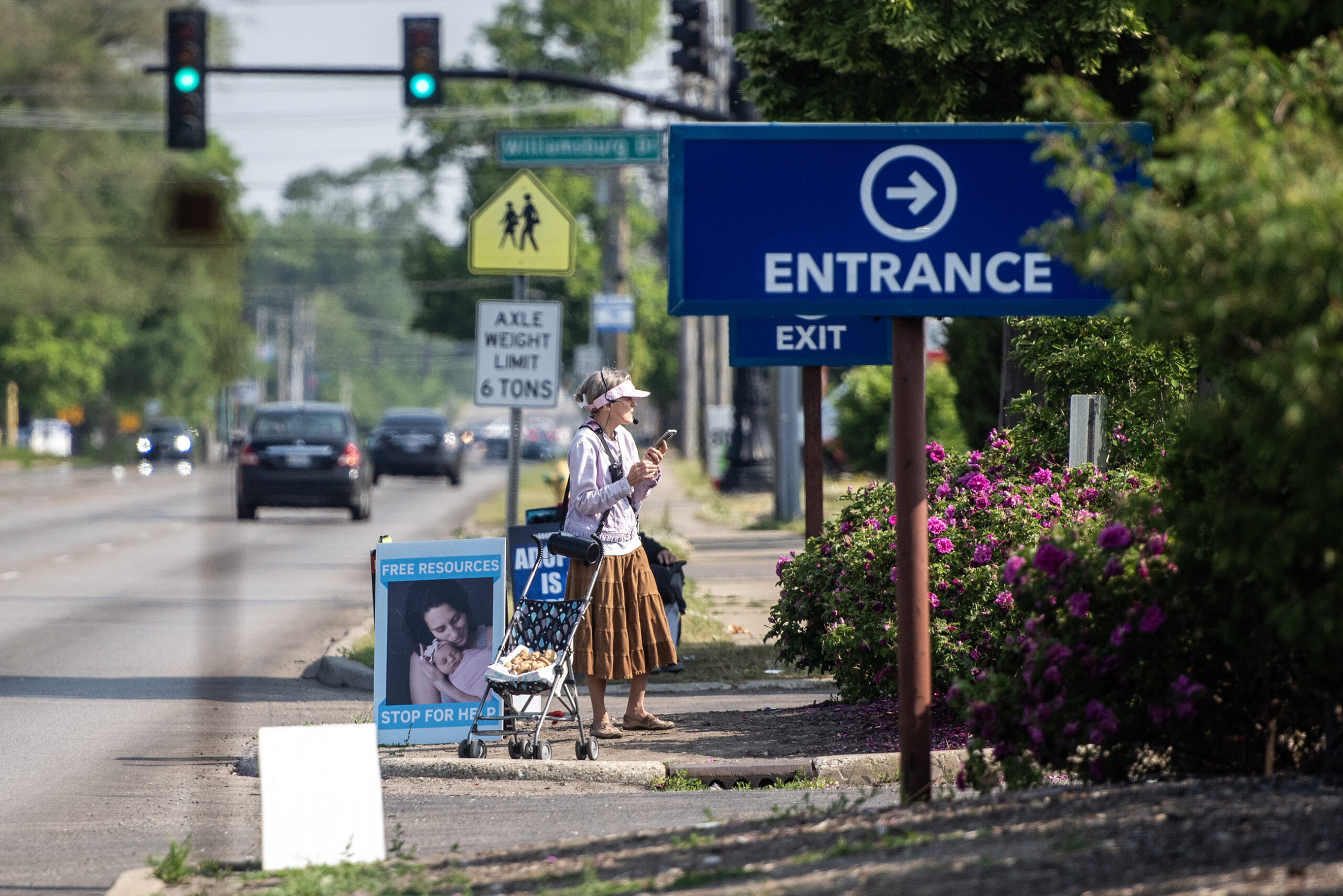
Even as abortion-seekers flock to other states, fewer get access
Planned Parenthood of Illinois reported a 54 percent increase in abortion patients since last summer, many of them coming from other states.
But despite all the interstate travel, the numbers have not evened out, said University of Wisconsin-Madison obstetrics and gynecology professor Jenny Higgins, who directs the Collaborative for Reproductive Equity.
“While less restrictive states such as Illinois and Minnesota have seen increases in the number of abortions, those increases do not make up for the decreases and restrictive states such as Wisconsin,” she said.
A recent study by #WeCount, a national abortion reporting project, found an average of 5,377 fewer abortions were provided per month nationwide in the six months following the Dobbs decision.
It’s too soon to know how the ban is affecting birth rates in Wisconsin, as those numbers have yet to be reported by the state. But Higgins looks to the closures of abortion clinics in Green Bay and Appleton in 2013 and 2015 to predict what may happen.
The birth rates went up in those areas, she said, and she expects to see the same thing in Wisconsin going forward.
“I can say with a lot of certainty that we would expect slight but significant increases in birth rates in the Wisconsin counties that have lost the most access to care,” she said.
In Wisconsin, pregnancy resource centers — sometimes referred to as pregnancy crisis centers — are also seeing increased demand, a representative from Wisconsin Right To Life recently told Wiconsin Public Radio.
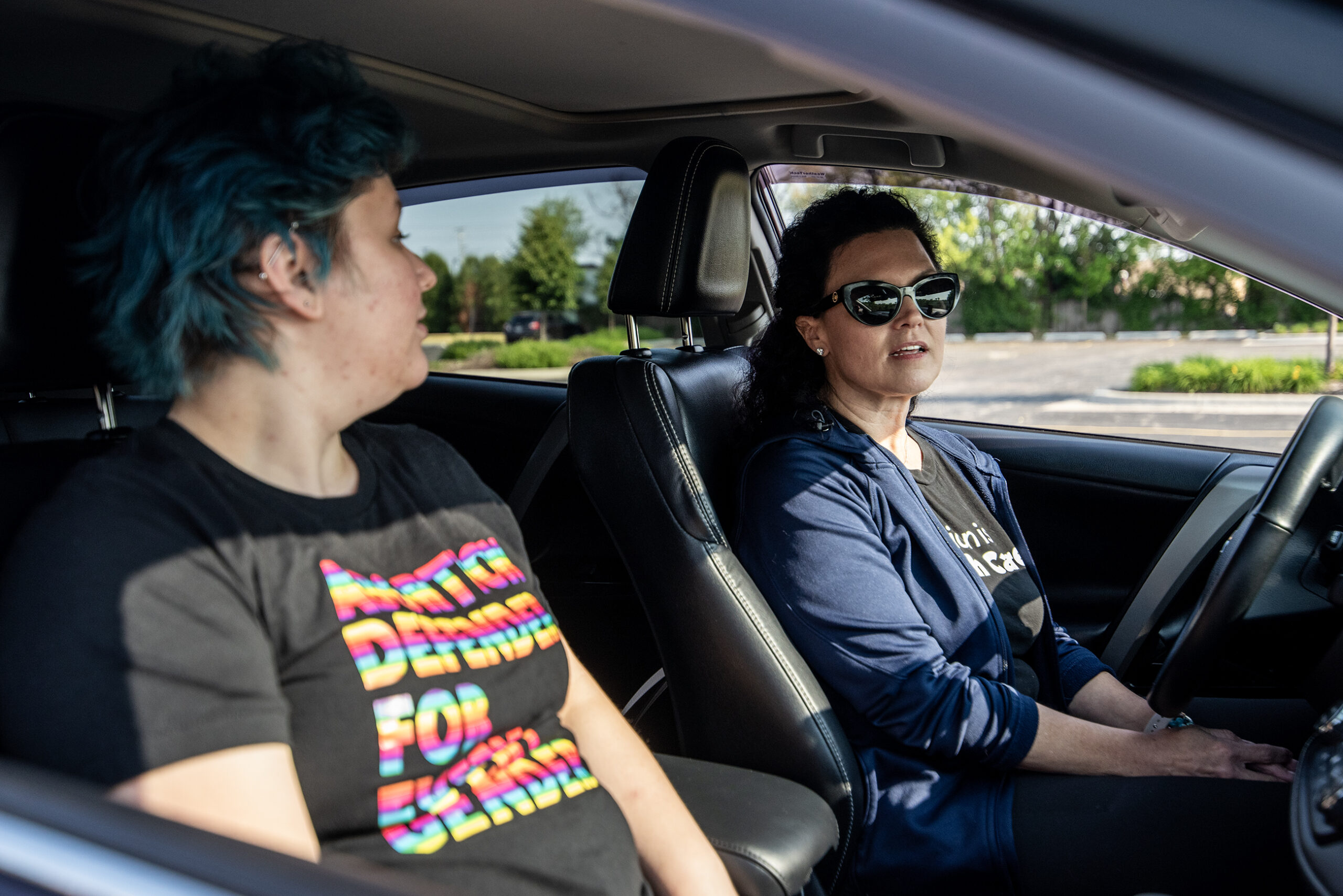
Medical confusion and fear are common
In addition to more people who may have once sought abortions having babies, there have been other medical ripple effects of the ban, said Dr. Allie Linton, associate medical director at Planned Parenthood of Wisconsin. Confusion and fear have been common in patients, she said.
“I’ve seen patients that have stayed at home longer, even though they’re concerned about something that they’re experiencing,” she said. “Even if it’s in the miscarriage realm, they are so afraid that they can’t seek out medical care in a state like Wisconsin or other states where something is banned.”
She said that fear has extended to doctors as well, who could face up to six years in prison for performing an abortion under current state law. Some have warned of a “chilling effect,” of abortion bans, where doctors treating miscarriage or ectopic pregnancy could delay care for fear they may be accused of providing abortions.
The Wisconsin Planned Parenthood clinics that once offered abortion services are still open, but now only provide things like routine family planning, STI screening and contraception. They also still provide pregnancy dating and ultrasound services for abortion patients who plan to travel for the actual medication or procedure appointment.
Planned Parenthood of Wisconsin has assigned “patient navigators,” who assist Wisconsin abortion-seekers in making out-of-state appointments and travel plans. Still, some patients are surprised to learn that abortion is no longer legal in the state.
“Even to this day, we’ll get a call and they don’t realize that they can’t get care in Wisconsin,” Linton said.
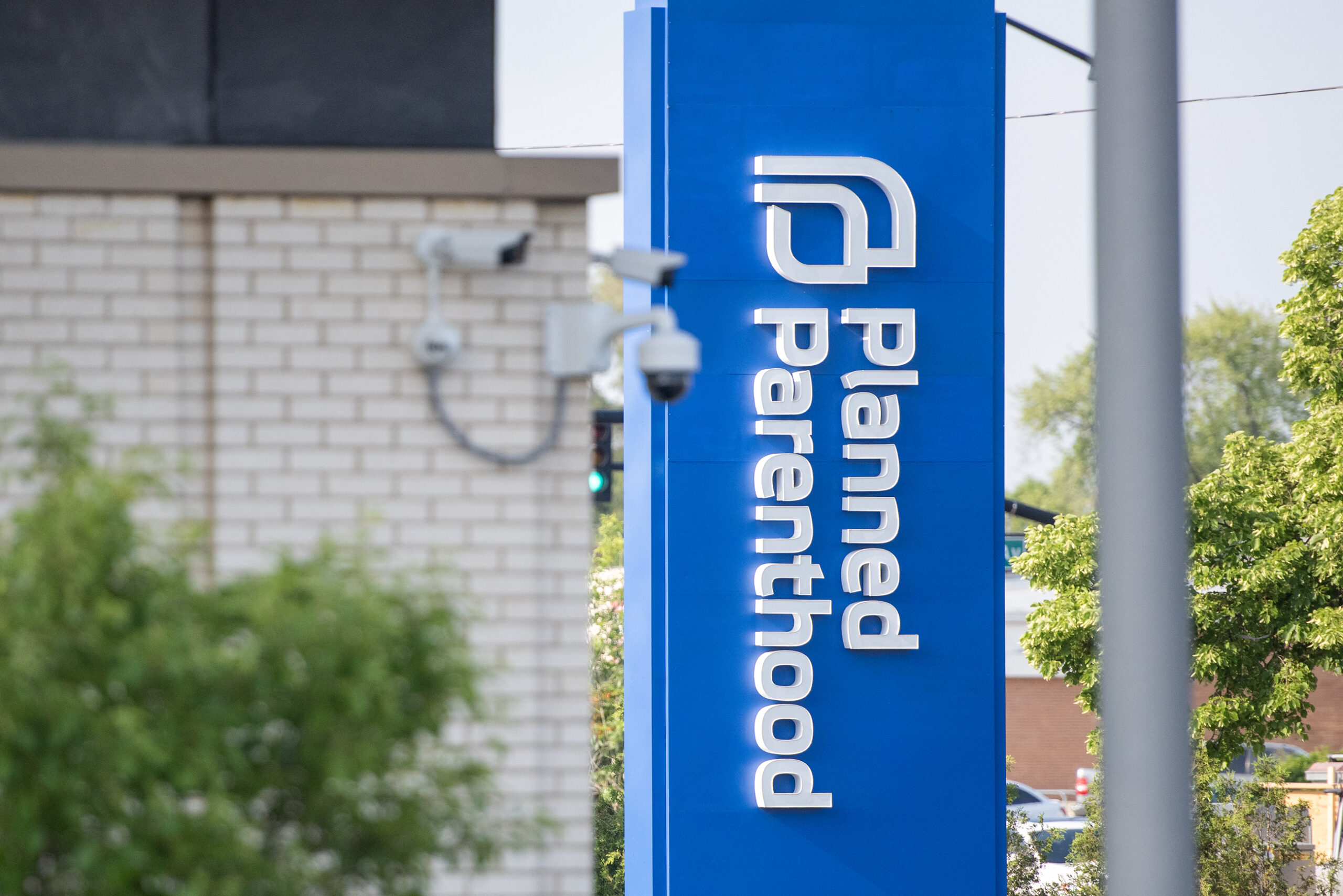
The Options Fund, a group that provides financial assistance for abortion-seekers in northwestern Wisconsin, saw a dip in requests immediately following the Dobbs opinion.
“We knew that it wasn’t because people weren’t trying to access services, but people thought they couldn’t anymore,” said fund president Cheryl Thiede.
Now, a year later, the numbers have returned to normal.
Despite massive changes to the abortion access landscape statewide, most of The Options Fund’s clientele are no farther from clinics than they’ve always been. Before the ban, Wisconsin had four abortion clinics, three run by Planned Parenthood in Milwaukee, Madison and Sheboygan, and one in Milwaukee called Affiliated Medical Services. People who didn’t live near those population centers were already traveling.
“We were set up with that framework, so we didn’t really have to pivot in that way,” Thiede said, but now, the out-of-state clinics face more pressure.
“The states where it’s legal now are carrying the burden of people from the other states,” she said. “So there is a little bit more of a lead time with appointments in Minnesota and Illinois as people from Texas, Louisiana, and all sorts of states are traveling.”
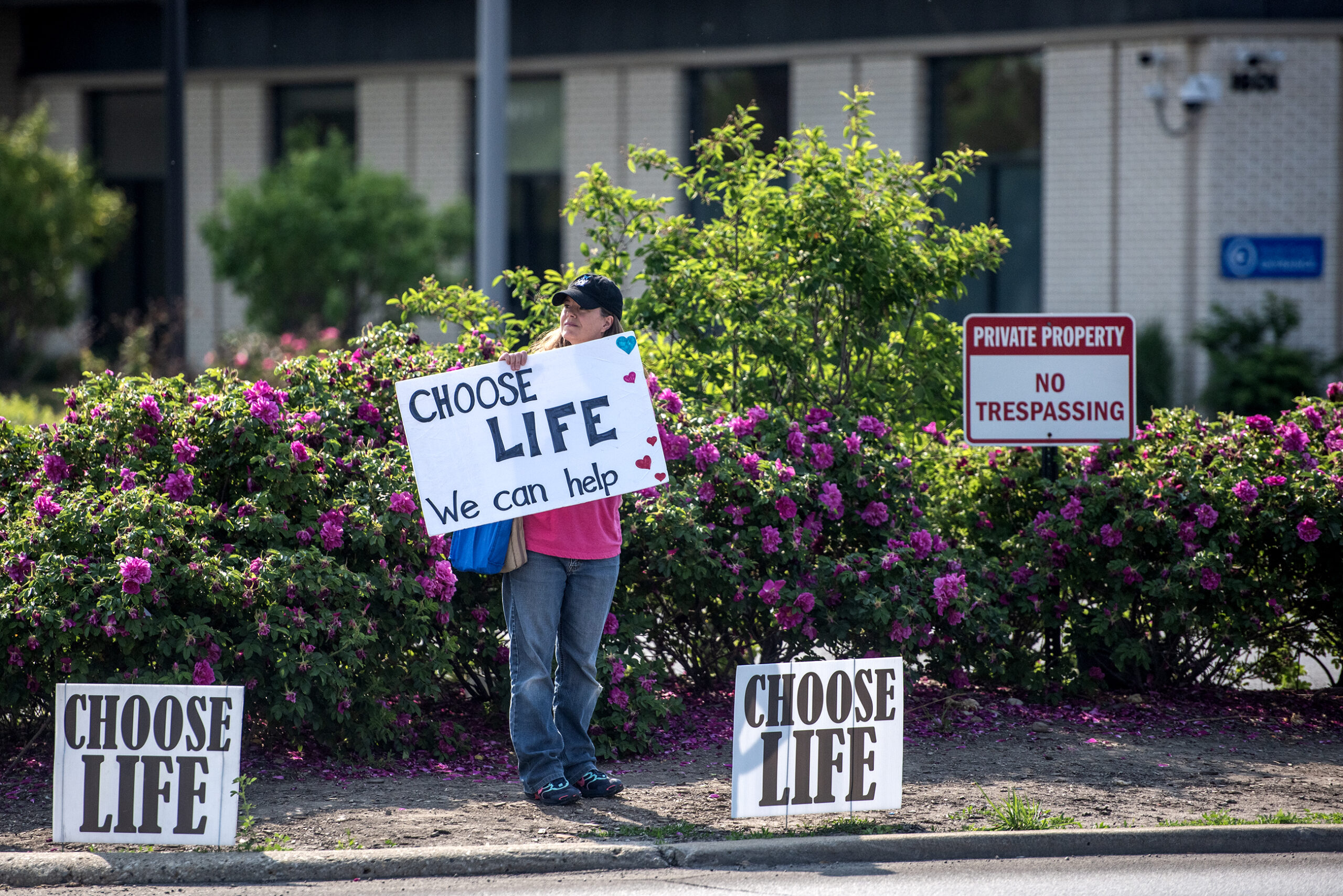
Both sides look to the state Supreme Court
The future of abortion in Wisconsin may come down to the state Supreme Court, which will now have a liberal majority after Milwaukee County Circuit Court Judge Janet Protasiewicz was elected to an open seat in April.
Matt Sande, legislative director of Pro-Life Wisconsin, remembers celebrating the Dobbs decision a year ago, and the group plans to mark Dobbs anniversary with a March For Life event at the state Capitol Saturday. Still, he doesn’t believe anti-abortion work is done, and is looking toward what the court will do.
“Yes, we’ve been abortion free for a year,” he said. “But abortion could be coming back in the near future.”
Planned Parenthood nurse Heather Ellingson is also looking toward the future, but she hopes abortion access will be restored.
“I was present when we had to close our door, and I would like to be there and swing that door right back open,” she said.
It’s expected the court could take up the abortion case as soon as August.
Wisconsin Public Radio, © Copyright 2026, Board of Regents of the University of Wisconsin System and Wisconsin Educational Communications Board.
